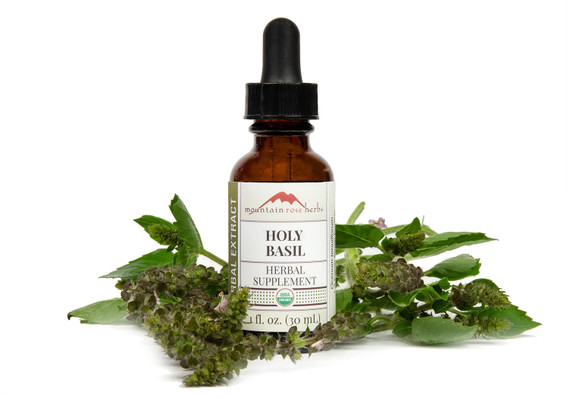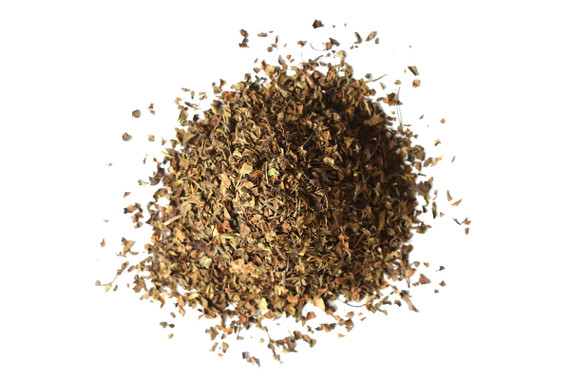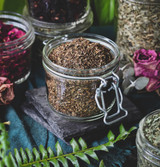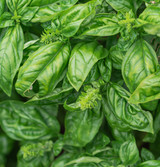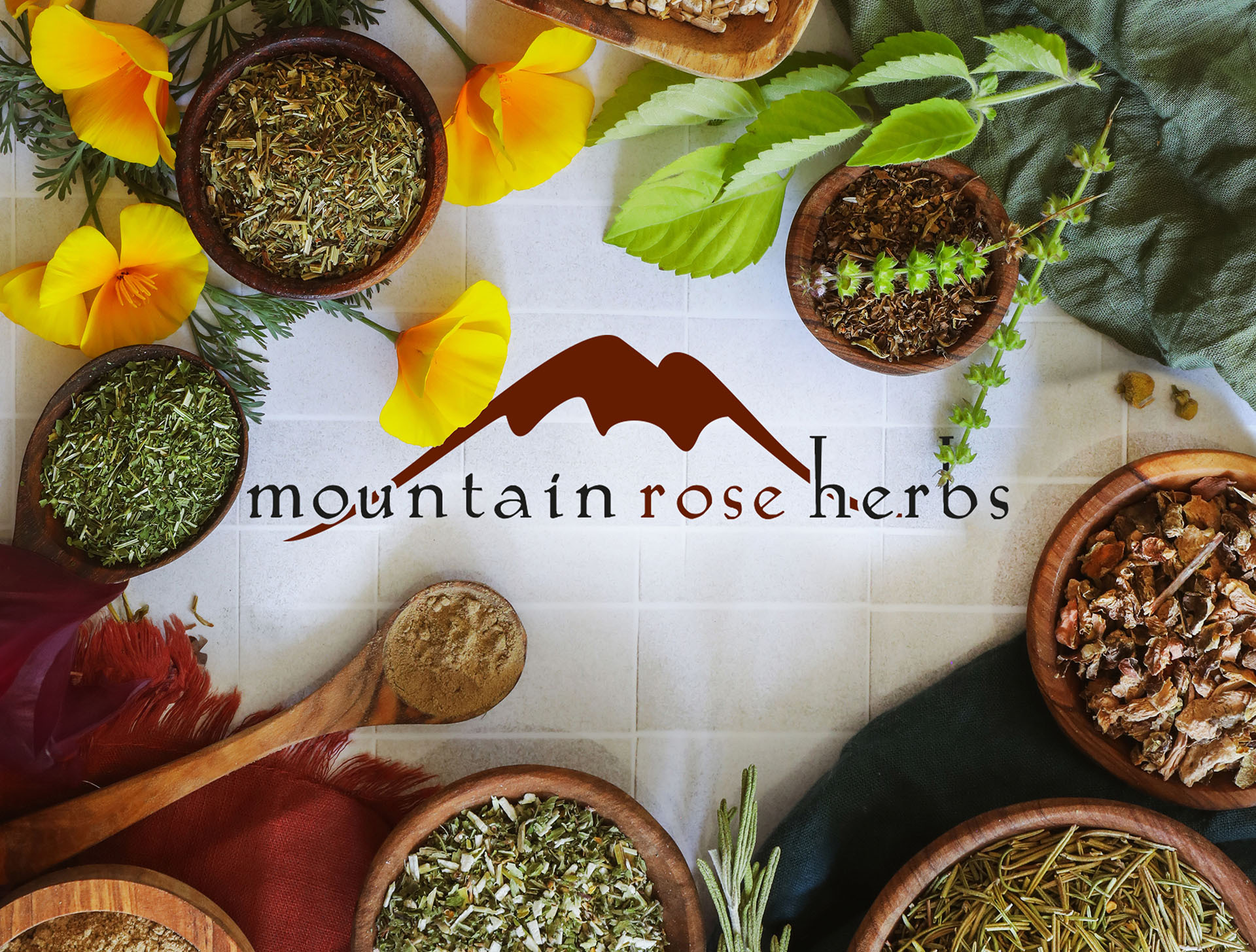Vana holy basil is considered a tree basil, or wild basil, and is a member of the Lamiaceae family native to India and east Africa. It has traditionally played a central role in the folk practices of these countries and was often employed for its healthful properties. Ocimum gratissimum can grow upwards of five feet tall, and the plant’s stems and leaves remain green throughout its growing cycle. Vana tulsi is known for its fragrance, which is similar to that of clove. It is typically infused as tulsi tea and added to round out holy basil tea blends.
Holy basil supports immune health to help you stay feeling your best.*
Holy basil has been revered throughout India for thousands of years. Ayurvedic texts describe holy basil as a pillar of holistic herbal medicine and a goddess incarnated in plant form (the mother medicine of nature). Many traditional Hindus worship an alter bearing a holy basil plant that is placed in the courtyard of their home or in another prominent location. Today holy basil remains one of the most cherished of India's sacred plants. The leaves smell of peppermint, cloves, licorice and/or lemon. There are four types of tulsi sold by Mountain Rose Herbs: Krishna, Rama, Kapoor, and Vana. All varieties belong to the mint family and are cousins of sweet basil.
Precautions
Not for use in pregnancy except under the supervision of a qualified healthcare practitioner. We recommend that you consult with a qualified healthcare practitioner before using herbal products, particularly if you are pregnant, nursing, or on any medications.
*This statement has not been evaluated by the Food and Drug Administration. This product is not intended to diagnose, treat, cure, or prevent any disease. For educational purposes only.



